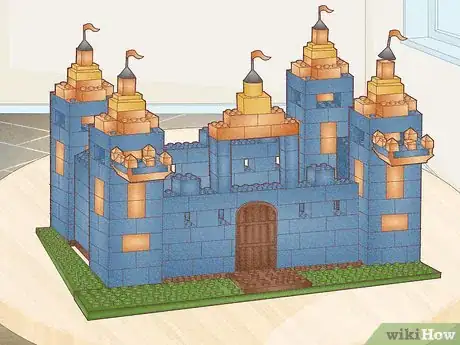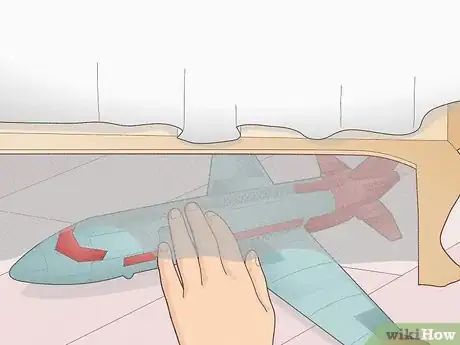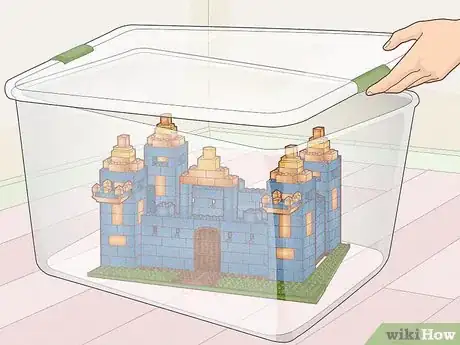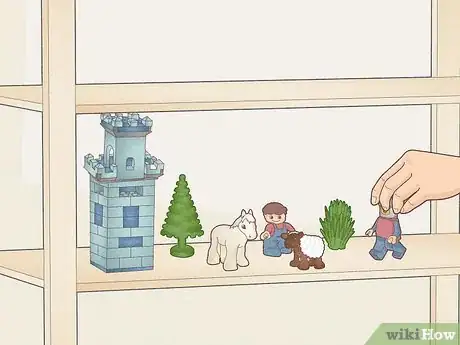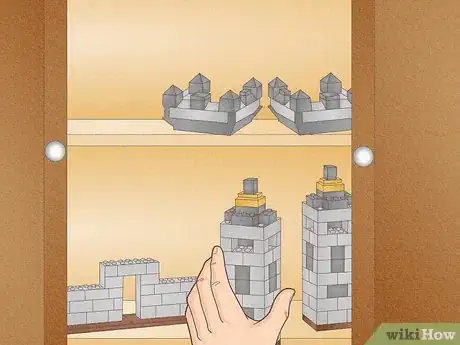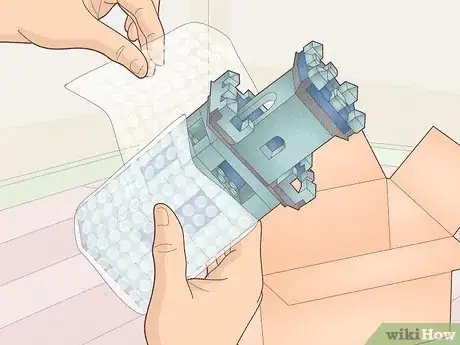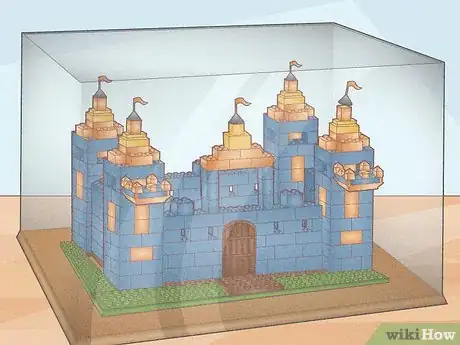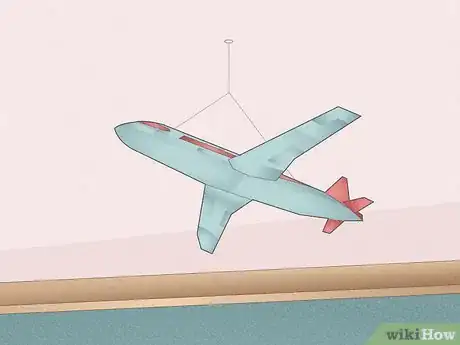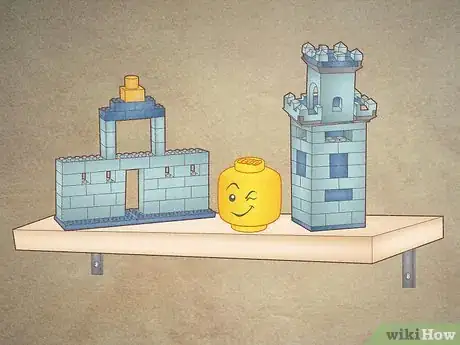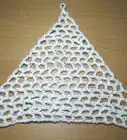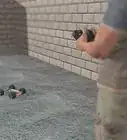This article was co-authored by wikiHow staff writer, Hunter Rising. Hunter Rising is a wikiHow Staff Writer based in Los Angeles. He has more than three years of experience writing for and working with wikiHow. Hunter holds a BFA in Entertainment Design from the University of Wisconsin - Stout and a Minor in English Writing.
There are 11 references cited in this article, which can be found at the bottom of the page.
This article has been viewed 40,271 times.
Learn more...
After spending a lot of time carefully building a LEGO set, you’re probably looking for somewhere to keep it safe. If you want to play with your sets later or just admire your hard work, there are so many storage options you can use without taking the LEGO blocks apart. We’ll give you some of the most popular ways to protect your LEGO sets whether you want them out on display or packed away safely!
Steps
Out on a play table
-
If you handle your sets frequently, keep them out in a dedicated play space. Choose a room in your home or a corner where you can keep a small table for your LEGO sets and pieces. Lay down a few of the large flat LEGO baseplates and secure your sets to them if you don’t want them to move around. Whenever you finish another build, add it to your table.[1] X Research source
- This works especially well if you’re building multiple sets into a LEGO town.
Under the bed
-
Shorter LEGO sets easily slide underneath your bed when you aren’t playing with them. Look for an under-bed storage container that has multiple compartments if you want to keep all of your sets separate. Otherwise, you can also keep all of the LEGO pieces and builds on a large tray that you can slide out whenever you want to play with them. Once they’re under your bed, you won’t have to worry about tripping over them between play sessions.[2] X Research source
- Push your LEGO sets far enough under your bed so you don’t accidentally kick them.
- Check that your bed doesn’t sag down when someone is in it, or else it could break the top pieces off of slightly taller sets.
Inside separate tote bins
-
Tote bins make it a lot easier to move your sets without breaking them. Buy clear tote bins so you can see which sets you’re storing inside them. Make sure the totes are deep enough so you can still put the lid on. Carefully set your build inside of the tote bin so none of the pieces break off. After that, you can store or stack the tote bin wherever you want until the next time you want to take your LEGO set out.[3] X Research source
- Be careful not to jostle the bin too much so the sets stay intact.
- If you have multiple smaller sets, you can keep them in the same tote bin.
- Some LEGO sets are too big for tote bins, so you may have to remove some of the pieces to make them fit.
- Store the instruction manuals for each set in the tote bin just in case something falls off.
On a bookshelf
-
You can decorate other bookshelves or buy one just for your LEGO sets. Check that your LEGO sets don’t overhang the edges of the shelves, or else they could tip over. Place the largest sets closer to the bottom and the smaller sets near the top so they’re less likely to fall and break. Try a few different layouts with your sets to see which ones you like best for your display.[4] X Research source
- LEGO sets based on books, movies, and TV shows work great for decorating a bookshelf near an entertainment center.
- Try putting LEGO sets based on landmarks or architecture on a desk or near reference books.
In a closet
-
Shelved closets are great for keeping sets out of sight until you want to take them out. Make some room on the shelves in your closet and carefully set your LEGO sets on them. Keep the LEGO creations you bring out the most near the front and the lesser-used ones closer to the back. That way, you won’t accidentally knock one of them down or break them.[5] X Research source
- Be careful putting your LEGO sets on a closet shelf that’s hard for you to reach, or else you might be more likely to drop them.
- You can keep the instruction manuals for your sets in a file folder or box.
Packed in bubble wrap
-
If you’re moving your LEGO set, bubble wrap can protect it in transit. Start by tightly winding plastic cling wrap around your LEGO set as tightly as you can without damaging it. That way, any LEGO pieces that break off while you’re moving won’t fall out. Bundle a few layers of bubble wrap around the outside to add an additional layer of protection. After that, you can move the sets into larger boxes or containers for your move.[6] X Research source
- Label any boxes with LEGO sets as “fragile” so you know to take extra care of them.
- If your LEGO set has fragile parts that stick out from the rest of the build, remove those pieces and keep them in a plastic bag.
In display cases
-
Display cases are perfect if you want to show off your build without it getting dusty. Look for a clear display case that’s tall enough to hold your LEGO set inside of it. After you put the display case together, open the lid and position your set how you want it on the base. Close and secure the lid on the case so your LEGO set stays preserved and dust-free.[7] X Research source
- You may want a display case if you have a set that’s rare or a collector’s edition.
Hung from the ceiling
-
Make spaceships and planes look like they’re soaring around your room. Install eyelet or adhesive hooks on your ceiling where you want to hang your LEGO set. Measure how far down you want your set to hang and cut a piece of fishing line that’s 3–4 in (7.6–10.2 cm) longer.[8] X Research source Wedge the fishing line between bricks near the set’s center of gravity before looping it around the hook.[9] X Research source
- Use multiple hooks for larger LEGO sets so you evenly distribute the weight, or else they may fall down.
Displayed on floating shelves
-
Floating shelves let you show off your sets without taking up floor space. Get shelves that are deep and long enough so your LEGO sets don’t hang over the edges. Hang your floating shelves on your wall so they attach to a wall stud so they stay secure. Try a few different arrangements for your sets once you get your shelves up to see what looks the best for your room.[10] X Research source
- You can always add more layers of floating shelves as your collection gets bigger or have them wrap around the walls in your room.
- Be careful when you’re reaching for sets that are out of reach since you could easily knock your sets over. Use a step ladder or stool if you need to access higher shelves.
Warnings
- Be cautious keeping LEGO sets where children or pets could reach them since they could accidentally break or drop them.⧼thumbs_response⧽
You Might Also Like
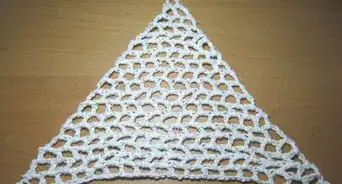

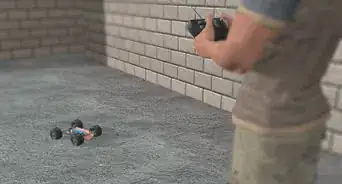

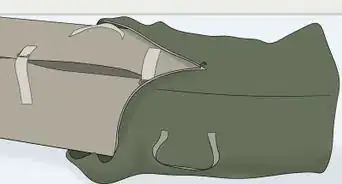
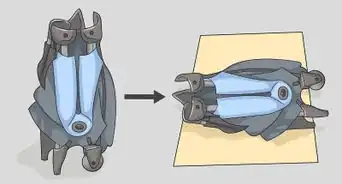


 How to Tell If Your Hot Wheels Are Worth Money
How to Tell If Your Hot Wheels Are Worth Money


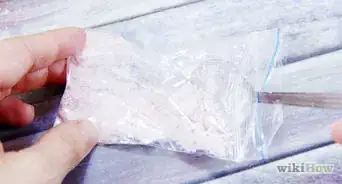
References
- ↑ https://frugalfun4boys.com/living-legos-storage-organization-ideas/
- ↑ https://brickarchitect.com/guide/bricks/small/
- ↑ https://youtu.be/gzTCyN4egb0?t=81
- ↑ https://inepthomeowner.com/the-best-lego-display-and-storage-ideas/
- ↑ https://youtu.be/j7SDIjYewAg?t=248
- ↑ https://moving.tips/packing-tips/how-to-pack-lego-sets-for-moving/
- ↑ https://youtu.be/E_aFttWbxj0?t=48
- ↑ https://youtu.be/NK4YzdHmfRM?t=626
- ↑ https://youtu.be/FQ6vTuT260E?t=845
About This Article

